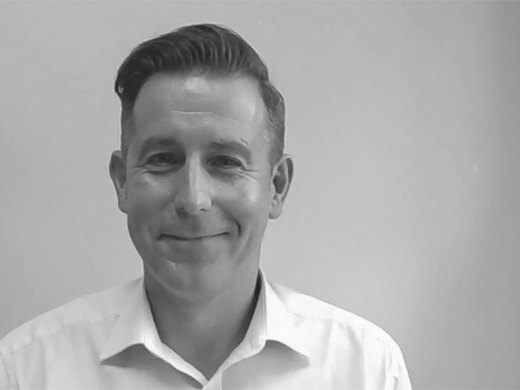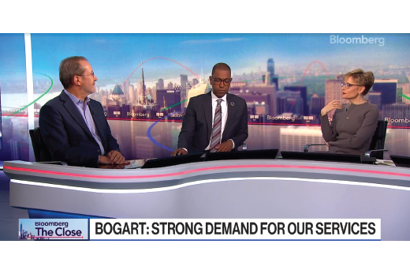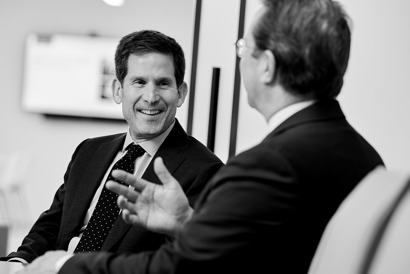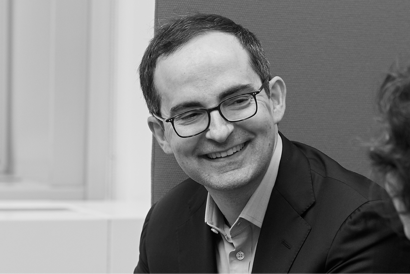Liz Bigham: Law firms and businesses often have millions of dollars worth of unenforced judgments and uncollected recoveries. Why is that?
Tom Evans: I think there are a number of reasons for that which range from the practical to the ideological. In practical terms, you have the problem of a truly recalcitrant judgment debtor. So if you think about the spectrum of disputes that are out there, most pieces of litigation settle. Litigation that goes all the way to trial or to arbitral tribunal, if somebody is found liable, most participants in that process will pay the award that's found against them. But you have this last category of let's say, truly recalcitrant judgment debtors who refuse to pay.
So that's a practical issue if you've got somebody who can but won't pay. I think the next major factor is probably for the judgment creditor. They have been through a years long process, potentially spent millions of dollars to get to their award or their judgment. They have a piece of paper that tells them that they're entitled to $50 million or a $100 million. They think they've played this exhausting game and they're at the final whistle and then it turns out it's actually only half time and they've got another three or four years to try and pursue that.
Those are the two practical factors. The one I describe as ideological or maybe philosophical is that there is then an issue for a corporate or an individual who is the judgment creditor. They have to think to themselves, am I going to spend more money and more time going after this? And so you have that sort of true fatigue stage and whether that's as simple as fee fatigue, and that might be a situation where we would come in and just fund the enforcement or it's a broader fatigue with the process and it's taking up so much management time that we might come in there and buy the award outright. So both that fee issue and that time cost is transferred to us.
If there was one other factor I'd mentioned, I suppose it's the complexity of the potential enforcement process. We see a lot in our practice, again, corporates or individuals who together with their legal team, they are comfortable and understand the linear domestic enforcement process in whatever jurisdiction that they are based, but they are less well equipped, whether that's financially equipped or equipped in terms of knowledge of other jurisdictions to perhaps think creatively and internationally about where they might be able to look for assets that belong to that judgment debtor and find other routes to the same goal. I think that's where we would come in again because we have a combination of lawyers and investigators to try and find additional ways to bring pressure on that judgment debtor.
Liz Bigham: How can clients use funded asset recovery when they have unenforced awards and judgments?
Tom Evans: Well, I think it is perhaps still unsurprising that people don't make that connection because there are not many litigation finance providers who have appetite for this sort of risk. It is a relatively esoteric asset class, even within the world of litigation finance. So, I think the important thing is to understand that, whether it's at the appeal stage, a first appeal or a second appeal or is truly a final judgment, there are solutions that we can offer. And getting our asset recovery team involved at whatever stage of that process is nearly always worthwhile to try and map out where the assets may be. There are a range of solutions that we can offer. We can just come in and be a truly passive finance provider where a client has sophisticated international counsel, they have an enforcement plan in place, and the ask they have of us is truly one that is a funding requirement, through to a situation where we are using our in-house asset tracing capabilities to add to the mix there alongside the client and alongside their lawyers as to the developing strategy. And that's going to be an iterative process as you try and obtain information or attach assets in different jurisdictions. And then I suppose the far end of that spectrum is going to be where we step in and we purchase the award or judgment outright. And that's a situation where there is a full risk transfer to us for the entirety of that enforcement process. The original judgment creditor may, depending on the deal terms, wish to retain a contingent interest in that outcome or they may wish just to make an exit at a given point and have us to make over.
Liz Bigham: What types of solutions does Burford offer clients with unenforced judgments and awards and what makes Burford a different type of partner?
Tom Evans: I think the important thing to understand about the way we approach this is that it's a dual approach. We have a mixed team in our asset recovery practice of investigators and lawyers. The lawyers that we have in the team are people whose practice was previously in civil fraud in international arbitration. But the common factor is that they all have deep experience in enforcing those awards. As I said earlier, there is a huge number of litigation judgments and arbitration awards that are simply paid by the losing party. In those situations, there's no need for us. So it's not every lawyer that has that experience of having to go through that second half of the game and enforce directly against somebody who is digging their heels in and refusing to pay.
So I think that a combination of lawyers who have that direct experience and investigators who have been within the recovery environment for a number of years and understand that it's not a linear process of mapping assets and providing a report, which is the more common approach in terms of if you are pure asset tracing service provider. In this situation, we are trying to make sure we have not only admissible evidence, but we are utilizing differences in discovery regimes in different jurisdictions. We are able to find pockets of information and work out how best to deploy them then in other jurisdictions where there might be assets. So again, when I talk about having a creative non-linear approach, I think that's the true difference. And having people with backgrounds in different disciplines working together on each investment is what really makes the difference in the outcomes.
This video was recorded in July 2023.
This communication shall not constitute an offer to sell or the solicitation of an offer to buy any ordinary shares or other securities of Burford. This video may not be copied, distributed, published or reproduced, in whole or in part.





